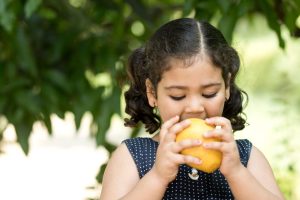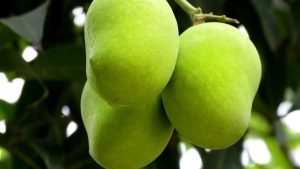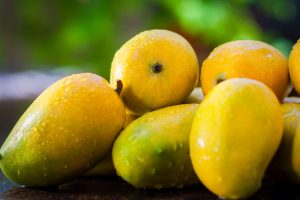
“Greening the Mango Supply Chain: Sustainable Export Practices for a Better Future”
Introduction
Sustainability in mango exports to Australia is a crucial issue that needs to be addressed to balance economic growth and environmental responsibility. Mango production and exportation have significant economic benefits for both the exporting country and the importing country. However, the production process can have negative impacts on the environment, such as deforestation, water pollution, and greenhouse gas emissions. Therefore, it is essential to implement sustainable practices in mango production and exportation to minimize the environmental impact while ensuring economic growth.
The Impact of Mango Farming on the Environment
Mango farming is a significant contributor to the economy of many countries, including Australia. However, the environmental impact of mango farming cannot be ignored. Mango farming requires a significant amount of water, pesticides, and fertilizers, which can have adverse effects on the environment. In this article, we will discuss the impact of mango farming on the environment and how sustainable practices can be implemented to balance economic growth and environmental responsibility.
Water Usage
Mango farming requires a significant amount of water, which can lead to water scarcity in areas where water is already limited. Mango trees require regular watering, especially during the dry season, to ensure healthy growth and fruit production. However, excessive water usage can lead to soil erosion, water pollution, and depletion of groundwater resources.
To address this issue, sustainable practices such as drip irrigation and rainwater harvesting can be implemented. Drip irrigation is a method of watering plants that uses less water than traditional irrigation methods. It delivers water directly to the roots of the plants, reducing water wastage. Rainwater harvesting involves collecting rainwater and storing it for later use. This method can help reduce the demand for groundwater and surface water, which can be used for other purposes.
Pesticides and Fertilizers
Mango farming also requires the use of pesticides and fertilizers to control pests and diseases and promote healthy growth. However, the excessive use of these chemicals can have adverse effects on the environment. Pesticides can contaminate soil and water, harm beneficial insects, and pose a risk to human health. Fertilizers can also contribute to water pollution and soil degradation.
To reduce the environmental impact of pesticides and fertilizers, sustainable practices such as integrated pest management (IPM) and organic farming can be implemented. IPM involves using a combination of methods to control pests, such as biological control, crop rotation, and the use of resistant varieties. Organic farming involves using natural methods to control pests and fertilize crops, such as composting, crop rotation, and the use of natural fertilizers.
Biodiversity
Mango farming can also have an impact on biodiversity. Mango orchards can replace natural habitats, leading to a loss of biodiversity. The use of pesticides and fertilizers can also harm beneficial insects and other wildlife.
To address this issue, sustainable practices such as agroforestry and conservation farming can be implemented. Agroforestry involves growing trees and crops together, which can help improve soil health, reduce erosion, and provide habitat for wildlife. Conservation farming involves using practices that promote soil health and biodiversity, such as crop rotation, cover cropping, and reduced tillage.
Conclusion
In conclusion, mango farming can have a significant impact on the environment. However, sustainable practices such as drip irrigation, rainwater harvesting, IPM, organic farming, agroforestry, and conservation farming can be implemented to reduce the environmental impact of mango farming. By balancing economic growth and environmental responsibility, we can ensure that mango exports to Australia are sustainable and beneficial for all.
Sustainable Practices in Mango Production and Exportation
Mango is one of the most popular tropical fruits in the world, and Australia is one of the largest importers of mangoes. However, the increasing demand for mangoes has put pressure on the environment and the communities that produce them. To ensure sustainable mango production and exportation, it is essential to balance economic growth with environmental responsibility.
One of the key sustainable practices in mango production is the use of integrated pest management (IPM). IPM is a holistic approach that combines different methods to control pests and diseases, such as biological control, cultural practices, and chemical control. This approach reduces the use of pesticides and promotes natural pest control, which is beneficial for the environment and human health. In addition, IPM can increase the quality and yield of mangoes, which can lead to higher profits for farmers.
Another sustainable practice in mango production is the use of organic farming methods. Organic farming avoids the use of synthetic fertilizers and pesticides, which can harm the environment and human health. Instead, organic farmers use natural fertilizers and pest control methods, such as composting, crop rotation, and companion planting. Organic farming can also improve soil health and biodiversity, which can lead to more resilient and productive farms.
To ensure sustainable mango exportation, it is essential to reduce the carbon footprint of transportation. One way to achieve this is to use more efficient transportation methods, such as sea freight instead of air freight. Sea freight has a lower carbon footprint than air freight and can also reduce transportation costs. In addition, using local transportation and distribution networks can reduce the distance and time required to transport mangoes, which can further reduce the carbon footprint.
Another way to ensure sustainable mango exportation is to reduce food waste. Food waste occurs at different stages of the supply chain, from harvesting to consumption. To reduce food waste, it is essential to improve harvesting and post-harvesting practices, such as proper handling, storage, and packaging. In addition, educating consumers about the importance of reducing food waste can help reduce the amount of mangoes that end up in landfills.
Finally, sustainable mango production and exportation require the involvement and empowerment of local communities. Mango production and exportation can provide economic opportunities for local communities, but it can also have negative impacts on their livelihoods and the environment. To ensure that local communities benefit from mango production and exportation, it is essential to involve them in decision-making processes, provide them with training and resources, and ensure that their rights and interests are protected.
In conclusion, sustainable practices in mango production and exportation are essential to balance economic growth with environmental responsibility. Integrated pest management, organic farming methods, efficient transportation, food waste reduction, and community involvement are some of the key practices that can ensure sustainable mango production and exportation. By adopting these practices, we can ensure that mangoes continue to be a delicious and nutritious fruit that benefits both people and the planet.
The Role of Certification in Promoting Sustainable Mango Exports
Sustainability in Mango Exports to Australia: Balancing Economic Growth and Environmental Responsibility
The global demand for mangoes has been on the rise in recent years, with Australia being one of the top importers of the fruit. However, with the increasing demand comes the need for sustainable practices in the production and export of mangoes. This is where certification plays a crucial role in promoting sustainable mango exports.
Certification is a process that verifies that a product or service meets certain standards set by an independent third party. In the case of mango exports, certification ensures that the mangoes are produced and exported in an environmentally responsible and socially sustainable manner. This includes factors such as the use of pesticides, water management, and fair labor practices.
One of the most recognized certifications for sustainable mango exports is the Fairtrade certification. Fairtrade is a global movement that aims to promote fair trade practices and improve the livelihoods of farmers and workers in developing countries. The Fairtrade certification ensures that the mangoes are produced in an environmentally sustainable manner, with minimal use of pesticides and chemicals. It also ensures that the farmers and workers are paid a fair price for their produce and work under safe and fair conditions.
Another certification that promotes sustainable mango exports is the Rainforest Alliance certification. The Rainforest Alliance is an international non-profit organization that works to conserve biodiversity and promote sustainable livelihoods. The Rainforest Alliance certification ensures that the mangoes are produced in a way that protects the environment, promotes social responsibility, and supports the economic viability of the farmers and workers.
Certification not only promotes sustainable practices in mango production and export but also provides a competitive advantage in the market. Consumers are becoming increasingly aware of the environmental and social impact of their purchases and are willing to pay a premium for products that are produced sustainably. This means that certified mangoes have a higher market value and are more likely to be purchased by environmentally conscious consumers.
Certification also provides a way for mango exporters to differentiate themselves from their competitors. With the increasing demand for sustainable products, certification can be used as a marketing tool to attract customers who are looking for environmentally responsible products. This can lead to increased sales and revenue for the exporters.
However, certification is not without its challenges. The certification process can be time-consuming and costly, especially for small-scale farmers who may not have the resources to meet the certification requirements. This can lead to a lack of access to the certification market and a disadvantage in the global market.
To address these challenges, there are initiatives that provide support to small-scale farmers in meeting the certification requirements. For example, the Fairtrade certification provides training and technical assistance to farmers to help them meet the certification standards. The Rainforest Alliance also provides support to farmers through its Sustainable Agriculture Network, which provides training and technical assistance on sustainable farming practices.
In conclusion, certification plays a crucial role in promoting sustainable mango exports to Australia. It ensures that the mangoes are produced and exported in an environmentally responsible and socially sustainable manner, provides a competitive advantage in the market, and promotes the economic viability of farmers and workers. While there are challenges to certification, initiatives are in place to support small-scale farmers in meeting the certification requirements. With the increasing demand for sustainable products, certification is becoming more important than ever in promoting sustainable mango exports.
The Economic Benefits of Sustainable Mango Farming
Mangoes are one of the most popular fruits in the world, and Australia is no exception. In fact, Australia is one of the largest importers of mangoes, with over 60% of its mangoes coming from overseas. This presents a great opportunity for mango farmers in countries like India, where mangoes are a major export crop. However, with this opportunity comes a responsibility to ensure that mango farming is sustainable and environmentally responsible.
Sustainable mango farming has many economic benefits, both for the farmers and for the wider community. Firstly, sustainable farming practices can increase crop yields and improve the quality of the fruit. This means that farmers can sell their mangoes at a higher price, which in turn increases their income. Additionally, sustainable farming practices can reduce the cost of inputs such as fertilizers and pesticides, which can be expensive for farmers. By reducing these costs, farmers can increase their profits and reinvest in their farms.
Sustainable mango farming can also have wider economic benefits for the community. Mango farming is often a major source of employment in rural areas, and sustainable farming practices can create more jobs. For example, sustainable farming practices such as intercropping can increase the diversity of crops grown on a farm, which can create more jobs for farm workers. Additionally, sustainable farming practices can improve the health of the soil and the surrounding ecosystem, which can benefit other crops grown in the area.
Another economic benefit of sustainable mango farming is that it can increase the resilience of farms to climate change. Mangoes are a tropical fruit, and as such, they are vulnerable to changes in temperature and rainfall patterns. Sustainable farming practices such as agroforestry can help to mitigate the effects of climate change by providing shade and reducing soil erosion. This can help to ensure that mango farms remain productive and profitable in the face of changing climatic conditions.
In addition to these economic benefits, sustainable mango farming also has environmental benefits. Mango farming can have negative environmental impacts, such as deforestation, soil erosion, and water pollution. Sustainable farming practices can help to mitigate these impacts by reducing the use of harmful chemicals, conserving water, and protecting biodiversity. For example, intercropping can help to reduce soil erosion and improve soil health, while agroforestry can help to protect biodiversity and provide habitat for wildlife.
Overall, sustainable mango farming has many economic benefits for farmers and the wider community, as well as environmental benefits. However, implementing sustainable farming practices can be challenging, particularly for small-scale farmers who may lack access to resources and information. Governments and international organizations can play a role in supporting sustainable mango farming by providing funding, technical assistance, and training. Additionally, consumers can support sustainable mango farming by choosing to buy mangoes that are certified as sustainable or grown using sustainable practices.
In conclusion, sustainable mango farming is essential for balancing economic growth and environmental responsibility in mango exports to Australia. Sustainable farming practices can increase crop yields, improve the quality of the fruit, create more jobs, increase the resilience of farms to climate change, and protect the environment. However, implementing sustainable farming practices can be challenging, and support from governments, international organizations, and consumers is needed to ensure that mango farming is sustainable and environmentally responsible.
Collaborative Efforts for a Sustainable Mango Industry in Australia
Australia is one of the largest importers of mangoes in the world, with the majority of its supply coming from countries such as India, Pakistan, and the Philippines. However, with the increasing demand for sustainably sourced products, the Australian mango industry has been working towards achieving a balance between economic growth and environmental responsibility.
Collaborative efforts have been made by various stakeholders in the mango industry to ensure that the production and export of mangoes to Australia are sustainable. These efforts include the implementation of sustainable farming practices, the use of eco-friendly packaging, and the establishment of certification programs.
One of the key players in the sustainable mango industry in Australia is the Australian Mango Industry Association (AMIA). The AMIA is a non-profit organization that represents the interests of the Australian mango industry. The association works closely with mango growers, exporters, and other stakeholders to promote sustainable practices in the industry.
The AMIA has developed a set of guidelines for sustainable mango farming practices. These guidelines cover various aspects of mango farming, including soil management, water conservation, pest and disease control, and waste management. Mango growers who follow these guidelines are able to produce mangoes that are not only of high quality but also environmentally friendly.
Another important aspect of sustainability in the mango industry is the use of eco-friendly packaging. Mangoes are typically shipped in plastic crates or cardboard boxes. However, these materials can have a negative impact on the environment. To address this issue, some mango exporters have started using biodegradable packaging materials such as cornstarch-based bags and trays.
Certification programs have also been established to ensure that mangoes exported to Australia are sustainably sourced. One such program is the Fairtrade certification. Fairtrade certification ensures that mango growers receive fair prices for their produce and that they follow sustainable farming practices. Mangoes that are certified by Fairtrade are marked with a label that indicates that they have been produced in a socially and environmentally responsible manner.
In addition to the efforts made by the AMIA and other stakeholders, the Australian government has also played a role in promoting sustainability in the mango industry. The government has provided funding for research into sustainable farming practices and has also implemented regulations to ensure that mangoes imported into Australia meet certain environmental standards.
Despite the progress made in promoting sustainability in the mango industry, there are still challenges that need to be addressed. One of the biggest challenges is the lack of awareness among consumers about the importance of sustainable sourcing. Many consumers are still unaware of the impact that their purchasing decisions can have on the environment.
To address this issue, the AMIA and other stakeholders have been working to educate consumers about the benefits of sustainable sourcing. This includes promoting the use of eco-friendly packaging, highlighting the benefits of sustainable farming practices, and raising awareness about certification programs.
In conclusion, the sustainable mango industry in Australia is a collaborative effort that involves various stakeholders, including mango growers, exporters, and the government. Through the implementation of sustainable farming practices, the use of eco-friendly packaging, and the establishment of certification programs, the industry has been able to achieve a balance between economic growth and environmental responsibility. However, there is still work to be done to raise awareness among consumers about the importance of sustainable sourcing. By working together, the mango industry in Australia can continue to grow while also protecting the environment for future generations.
Conclusion
Conclusion: Sustainability in mango exports to Australia is crucial for balancing economic growth and environmental responsibility. It is important to implement sustainable practices in the production, transportation, and packaging of mangoes to reduce the carbon footprint and minimize the negative impact on the environment. By adopting sustainable practices, mango exporters can ensure long-term economic growth while preserving the environment for future generations.




